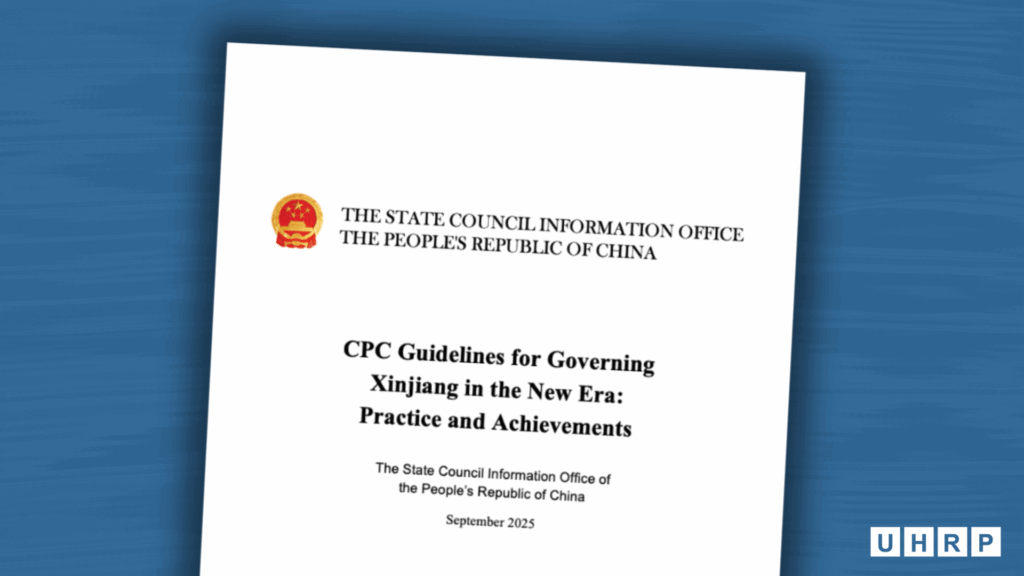UHRP Condemns White Paper Whitewashing 70 Years of Repression of Uyghurs

For immediate release
September 24, 2025 | 12:00 p.m. EDT
Contact: Omer Kanat, +1 (202) 790-1795
The Uyghur Human Rights Project (UHRP) condemns the Chinese government’s claims to have achieved “happiness” for the Uyghur people, in an official White Paper marking the 70th anniversary of the establishment of the Xinjiang Uyghur Autonomous Region government.
“It is an absurd piece of nonsense,” said UHRP Executive Director Omer Kanat. “It is shameful for the Chinese government to claim to be preserving ethnic culture and language when in fact the Uyghur people are currently suffering the systematic, step-by-step elimination of our language and heritage.”
China’s State Council Information Office issued the new English-language White Paper on September 19, 2025. Titled CPC Guidelines for Governing Xinjiang in the New Era: Practice and Achievements, the White Paper praises the establishment of the XUAR for contributing to “unprecedented economic and social development and significant improvement of people’s well-being, and brought a greater sense of gain, happiness, and security to the people.”
Coinciding with the visit of Communist Party General Secretary Xi Jinping to Ürümchi, the paper serves as part of the government’s eight-year campaign to whitewash its atrocity crimes against Uyghurs and other Turkic Muslim peoples. Its claims are also an extension of 75 years of propaganda asserting that the Chinese Communist Party’s rule since 1949 is welcomed by those who have suffered under its policies of systematic discrimination and repression.
In October 2009, on the 60th anniversary of the People’s Republic of China’s control of the Uyghur homeland, the State Council issued a similar White Paper on Development and Progress in Xinjiang. At the time, UHRP called attention to the hypocrisy and omissions of the White Paper in a report by Amy Reger, Separate and Unequal: The Status of Development in East Turkestan. The report highlights the Chinese government’s record of inequality and poverty in the region, citing “the policy failures that lie at the heart of social discontent in East Turkestan.”
